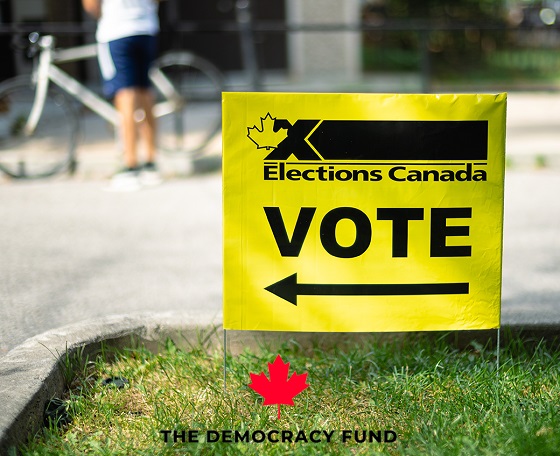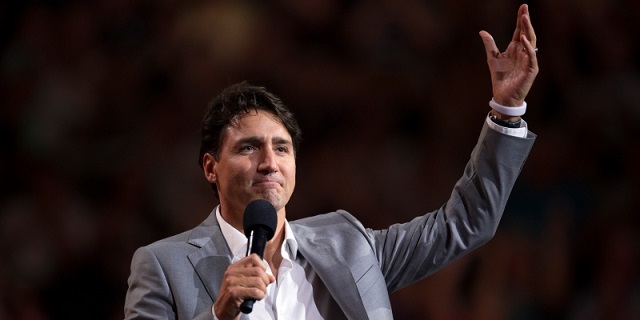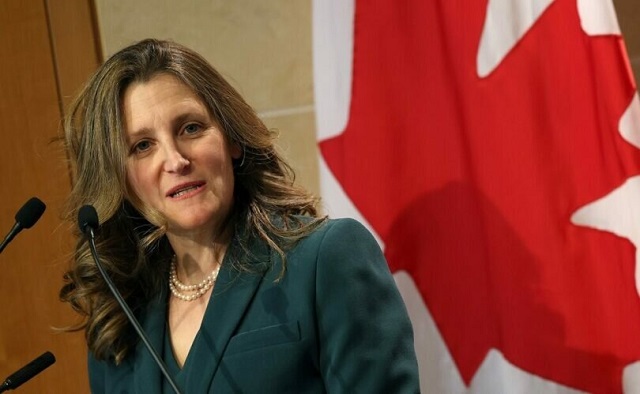Alberta
TDF expresses concern over Election Canada’s new mis/disinformation policy

From The Democracy Fund

Written by TDF’s Legal Team
The Democracy Fund sends a letter to Elections Canada and Minister LeBlanc.
Elections Canada has recently developed a policy to monitor and dissuade the publication of “misinformation” and “disinformation.”
In January 2024, it launched its ElectoFacts website to provide “correct information about elections that Canadians can easily access.” Elections Canada claims that it does not intend to establish Elections Canada as “the arbiter of truth” that will actively monitor the accuracy of statements and information distributed by parties and candidates.
However, The Democracy Fund (TDF) fears that the ambiguous language and the apparent lack of legislative authority to engage in such an endeavour will lead to an expansion of the program. Elections Canada has also contacted social media companies to remove “inaccurate” information: this is troubling because it is arguably an infringement of free speech rights, and there appears to be no judicial oversight of this censorship.
Canadians have the right to criticize their government and its processes – even if this criticism is wrong, inapt, trivial, unfair or unjustified. Efforts by the Western governments to constrain criticism using fashionable terms such as “misinformation” or “disinformation” are just state censorship rebranded for modern audiences.
TDF outlined its concerns in a letter to the Office of the Chief Electoral Officer and the Minister of Public Safety, Democratic Institutions and Intergovernmental Affairs, Dominic LeBlanc.
Our letter is attached below.
February 9, 2024
via email
Stéphane Perrault
Acting Chief Electoral Officer
Office of the Chief Electoral Officer
Elections Canada
30 Victoria Street
Gatineau, Quebec
K1A 0M6
Dear Mr. Perrault,
Re: Elections Canada Misinformation/Disinformation Monitoring
We are a civil society organization and registered charity that defends and promotes civil liberties in Canada. We are writing to express our concerns regarding comments around election “misinformation” and “disinformation” on the Elections Integrity and 1 ElectoFacts website.2
On its Election Integrity website, under “Disinformation or Influence Campaign,” Elections Canada outlines several types of objectionable conduct, namely:
- Elections Canada: Influence campaigns aimed at discrediting parts of the electoral process.
- Political Parties/Candidates: Social media campaign to spread false information about a candidate.
- Electors: Foreign online campaign aimed at specific diaspora communities to influence their vote.
In addition, Elections Canada purports to monitor the “information environment” (the news media, the Web, social media, etc.) to detect:
- Incidents that could affect the smooth administration of a general election or by-election;
- Inaccurate information on the electoral process, which could prevent people from exercising their rights to register, vote or be a candidate; and,
- Social media accounts and websites that impersonate Elections Canada, which could lead to confusion.3
We note that Elections Canada has previously contacted social media companies – including Facebook, Twitter, Google, Snapchat, LinkedIn, Reddit, YouTube, TikTok, and Instagram:
- Elections Canada (EC) engages with digital platforms that have a significant Canadian presence as well as those that have reached out to EC.
- For the 44th general election (GE44), EC worked with Facebook/Instagram, Google/YouTube, Twitter, LinkedIn, Snapchat, and for the first time, TikTok and Reddit, to establish protocols for reporting cases of false information on the voting process and impersonation of EC.4
The purpose of this contact was to report online content to these platforms and, presumably, have them remove “false information.” This was done without prior judicial oversight and review.
There are a number of problems with this approach to monitoring online information.
First, it is not clear that Elections Canada has the legislative authority to report citizens or their online comments, or attempt to influence platforms to remove “false information.” Even if it did, doing so without judicial review and oversight is arguably improper.5 Where there was authority to regulate “false statements” in the Canada Elections Act6 (“the Act”), we note that the court, in Constitution Foundation v. Canada (Attorney General), held that s.91(1) of the Act breached s.2(b) of the Canadian Charter or Rights 7 and Freedoms.8
Importantly, the legality of prohibiting the publication of “false news” has been adjudicated by Canadian courts, and the relevant Criminal Code provisions have been 9 struck down.10
Second, the ability to identify “misinformation” and “disinformation” requires resolution of one of the most difficult problems in epistemology. Simply put, an assessment of the truth of a statement engages the central questions of epistemology: what is meant by the claim that a statement is true, and under what authoritative conditions can one be certain that a statement is true (“the Epistemic Problem”). This Epistemic Problem has bedeviled philosophers for millennia, and remains unresolved. Until such time as it is resolved, claims to epistemic certainty are unfounded.
There is no evidence that Elections Canada has resolved the Epistemic Problem. It cannot, therefore, arrogate to itself the required certainty on matters of truth or falsehood.
Third, we note that the language used by Elections Canada regarding “false information” is ambiguous. Linguistic ambiguity allows for expansive regulatory powers. Further, the language used does not allow for “false information” that is comedic, parodistic or satirical. As a result, removal or attempted removal of “false information” will be overbroad and imprecise.
Fourth, given the concerns outlined above, it is not clear that Elections Canada could implement any process that would be better at ascertaining truth than citizens using normal human discernment.
Consequently, any removal or attempted removal of “false information” will be an exercise in either arbitrary or politically-motivated censorship. This is particularly troubling because the type of “false information” that attracts attention usually relates to contested or controversial political and moral statements, rather than trivial falsehoods.
Worse still, in our experience, punishment for contravening speech laws is typically inflicted upon minority communities, vulnerable groups and political dissidents: those with privilege avoid sanction.
Finally, attempts to remove “false information” will ultimately result in the erosion of civil liberties and democratic engagement. The reduction in exposure to moral and political information – both true and false – prevents citizens from engaging with complex arguments, and, thereby, diminishes their critical-thinking capacity. For, if the information expressed was correct, participants would have gained the benefit of exchanging their wrong information for correct information. If the information expressed
was wrong, participants would have gained the benefit of intellectual justification for their beliefs, without which they possess not knowledge, but dead dogma.11
For these reasons, we would respectfully recommend that Elections Canada restrict its conduct to publishing factual information about elections and the electoral process. It is safer and more practicable for the citizens as Canada to remain the arbiters of truth.
As always, we would be pleased to meet with you to discuss our concerns and any questions you may have about our position.
Regards,
Mark A. Joseph
Senior Litigation Counsel
c.c.: Minister of Public Safety, Democratic Institutions and Intergovernmental Affairs
- Election Integrity and Security Including Foreign Interference
- ElectoFacts
- Supra, note 1.
- Agreements with social media platforms to address inaccurate information
- Little Sisters Book and Art Emporium v. Canada (Minister of Justice), [2000] 2 SCR 1120
- Canada Elections Act, S.C. 2000, c. 9
- Constitution Foundation v. Canada (Attorney General), 2021 ONSC 1224
- Canadian Charter of Rights and Freedoms, s.7, Part 1 of the Constitution Act, 1982, being Schedule B to the Canada Act 1982 (UK), 1982, c 11 a
- Criminal Code, RSC , 1985, c. C-46
- R. v. Zundel, [1992] 2 SCR 731
- Chicago. Mill, John Stuart. 2002. On Liberty. Dover Thrift Editions. Mineola, NY: Dover Publications.
About The Democracy Fund:
Founded in 2021, The Democracy Fund (TDF) is a Canadian charity dedicated to constitutional rights, advancing education and relieving poverty. TDF promotes constitutional rights through litigation and public education. TDF supports an access to justice initiative for Canadians whose civil liberties have been infringed by the government lockdowns and other public policy responses to the pandemic.
Alberta
Former senior financial advisor charged with embezzling millions from Red Deer area residents

News release from Alberta RCMP
Former senior financial advisor charged for misappropriating nearly $5 million from clients
On April 4, 2024, the RCMP’s Provincial Financial Crime Team charged a Calgary resident for fraud-related offences after embezzling millions of dollars from his clients while serving as a senior financial advisor.
Following a thorough investigation, the accused is alleged to have fraudulently withdrawn funds from client accounts and deposited them into bank accounts he personally controlled. A total of sixteen victims were identified in the Red Deer area and suffered a combined loss of nearly $5 million.
Marc St. Pierre, 52, a resident of Calgary, was arrested and charged with:
- Fraud over $5,000 contrary to section 380(1)(a) of the Criminal Code; and,
- Theft over $5,000 contrary to section 344(a) of the Criminal Code.
St. Pierre is scheduled to appear in Red Deer Provincial Court on May 14, 2024.
“The ability for financial advisors to leverage their position to conduct frauds and investment scams represents a significant risk to the integrity of Alberta’s financial institutions. The investigation serves as an important reminder for all banking clients to regularly check their accounts for any suspicious activity and to report it to their bank’s fraud prevention team.”
- Sgt. John Lamming, Provincial Financial Crime Team
The Provincial Financial Crime Team is a specialized unit that conducts investigations relating to multi-jurisdictional serious fraud, investments scams and corruption.
Alberta
Political parties will be part of municipal elections in Edmonton and Calgary pilot projects

Strengthening Alberta’s local elections
Alberta’s government is introducing legislation to ensure Albertans can rely on transparent, free and fair elections, and municipally-elected officials have clearer accountability measures.
In a democratic society, Albertans expect their local elections to be free and fair, and their elected officials to be held to account by clear rules that govern their local councils. The Municipal Affairs Statutes Amendment Act proposes amendments to the Local Authorities Election Act (LAEA) and the Municipal Government Act (MGA) to add greater transparency to local election processes and ensure local councils and elected officials continue to remain accountable to the citizens who elected them.
“Our government is committed to strengthening Albertans’ trust in their local governments and the democratic process that elects local leaders. The changes we are making increase transparency for Alberta voters and provide surety their votes will be counted accurately. We know how important local democracy is to Albertans, and we will work with local authorities to protect and enhance the integrity of local elections.”
Local Authorities Election Act
Albertans expect free and fair elections and that’s why it’s important we strengthen the rules that govern local elections. To strengthen public trust in local elections, Alberta’s government will eliminate the use of electronic tabulators and other automated voting machines. All Albertans should be able to trust the methods and results of local elections; requiring all ballots to be counted by hand, clarifying rules and streamlining processes for scrutineers will provide voters greater assurance in the integrity of the results.
All eligible Albertans should be able to vote in local elections without impediment. Alberta’s government will limit the barriers for eligible voters to cast a ballot by expanding the use of special ballots. Currently, special ballots can only be requested for very specific reasons, including physical disability, absence from the municipality, or for municipal election workers. By expanding the use of special ballots, the government is encouraging more voter participation.
Amendments in the Municipal Affairs Statutes Amendment Act would increase transparency in local elections by enabling political parties at the local level. Political parties would be enabled in a pilot project for Edmonton and Calgary. The act will not require candidates to join a political party in order to run for a local or municipal office, but will create the opportunity to do so.
In addition, proposed changes to the Local Authorities Election Act would allow municipalities the option to require criminal record checks for local candidates, thus increasing transparency and trust in candidates who may go on to become elected officials.
Municipal Government Act
The role of an elected official is one with tremendous responsibility and expectations. Changes proposed to the Municipal Government Act (MGA) will strengthen the accountability of locally elected officials and councils. These include requiring mandatory orientation training for councillors, allowing elected officials to recuse themselves for real or perceived conflicts of interest without third-party review and requiring a councillor’s seat to become vacant upon disqualification.
If passed, the Municipal Affairs Statutes Amendment Act will also unlock new tools to build affordable and attainable housing across Alberta. Proposed amendments under the MGA would also create more options for municipalities to accelerate housing developments in their communities. Options include:
- Exempting non-profit, subsidized affordable housing from both municipal and education property taxes;
- Requiring municipalities to offer digital participation for public hearings about planning and development, and restricting municipalities from holding extra public hearings that are not already required by legislation; and
- Enabling municipalities to offer multi-year residential property tax exemptions.
Municipal Affairs will engage municipalities and other partners over the coming months to hear perspectives and gather feedback to help develop regulations.
Quick facts
- The LAEA establishes the framework for the conduct of elections in Alberta municipalities, school divisions, irrigation districts and Metis Settlements.
- The MGA establishes the rules governing the conduct of local elected officials once on council, as well as the overall administration and operation of municipal authorities in Alberta, including any policy those authorities may wish to implement.
Related information
-

 Business2 days ago
Business2 days agoDon’t be fooled by high-speed rail
-

 Alberta2 days ago
Alberta2 days agoActivity-Based Hospital Funding in Alberta: Insights from Quebec and Australia
-

 Business2 days ago
Business2 days agoUN plastics plans are unscientific and unrealistic
-

 Business2 days ago
Business2 days agoTaxpayers criticize Trudeau and Ford for Honda deal
-

 Fraser Institute2 days ago
Fraser Institute2 days agoCanadians should decide what to do with their money—not politicians and bureaucrats
-

 Addictions2 days ago
Addictions2 days agoBritish Columbia should allow addicts to possess even more drugs, federal report suggests
-

 Alberta2 days ago
Alberta2 days agoAlberta official reveals ‘almost all’ wildfires in province this year have been started by humans
-

 Alberta2 days ago
Alberta2 days agoPolitical parties will be part of municipal elections in Edmonton and Calgary pilot projects








